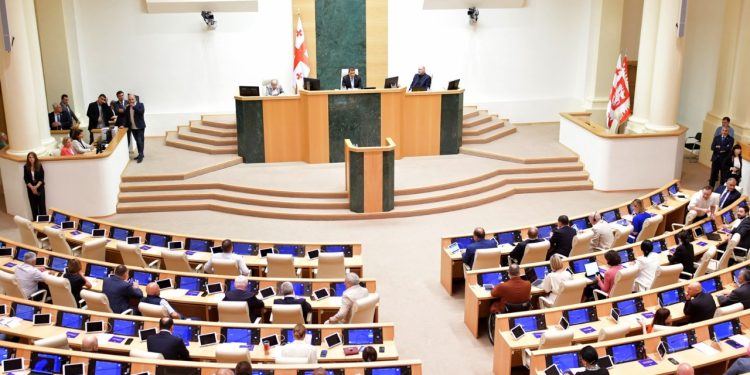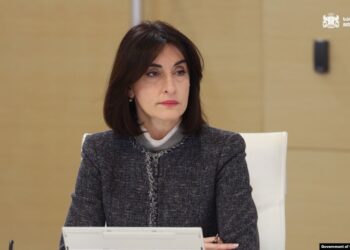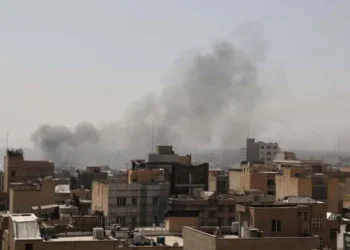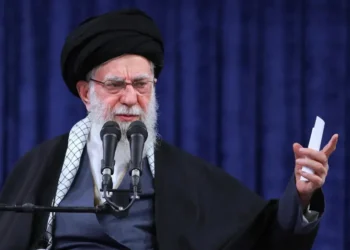The non-governmental organization Transparency International-Georgia says that on September 4, the Parliament approved the revised Rules for Maintaining Security in the Palace of the Parliament, which significantly diminishes its openness and transparency.
The organization says that on grounds of security, the Parliament limited public participation in parliamentary activities. The new regulations further infringe upon freedom of expression and perpetuate the ongoing trend of reducing the transparency of the Parliament, a policy that the country’s legislative body has been actively pursuing for several years.
“The revised security rules of the Parliament will notably curtail the participation of the public in parliamentary activities and the engagement of civil society, ultimately making the Parliament a closed institution. The revised Rules that restrict visitors from engaging with journalists in the area designated for the briefing for Members of Parliament, without prior authorization from the Parliament’s office, and from carrying demonstration signs and posters into the Parliament represent a significant violation of the fundamental right to freedom of expression. As per the Constitution of Georgia, limitations on political expression are only justifiable when they relate to threats to state or public security, territorial integrity, or other substantial legitimate interests. Restricting freedom of expression solely on the grounds of political discomfort to members of parliament is unjustified.
“On October 5, 2023, the Chairman of the Parliament announced that a draft of amendments to the internal rules of the Parliament was prepared, according to which staff members of the Parliament will be prohibited from communicating with journalists in the briefing area without the consent of the Public Relations Department of the Parliament.
“In a parliamentary republic, the transparency and openness of the parliament stand as the foundational pillars of the country’s democratization. The Parliament should encourage public participation in parliamentary affairs. Per the revised rules, the entry procedures to the Parliament are becoming increasingly restrictive, with a new requirement to document the intended purpose of entry. This restriction lacks justification, since limitations should only be imposed for security reasons. Unless there is a clear threat to security, citizens should enjoy the freedom to attend committee meetings and open events held in the Parliament.
“For the past few years, the 10th Convocation Parliament has deliberately been pursuing a policy of rendering the institution closed and non-transparent and the new rules represent a continuation of this approach.
“On multiple occasions, Members of Parliament and civil society representatives have faced unjustified restrictions when attempting to access the Parliament building. It has become a common practice within the legislative body to limit access on the pretext of security concerns, particularly when topics of high public interest are under discussion and critical comments are anticipated. Furthermore, a metal fence was erected at the entrance of the Parliament building at different times. Currently, a metal barrier remains in front of the Parliament building.
“Starting in 2022, the shift towards making the Parliament a more closed institution has affected parliamentary oversight organizations and members of the media as well. The Parliament has revoked permanent passes for specific local and international non-governmental organizations that hold a critical role in monitoring parliamentary activities. This move has significantly impeded the monitoring of parliamentary proceedings. Representatives of non-governmental and international organizations have been using the working space in the parliament building for years. In 2022, 5 international and non-governmental organizations were asked to leave the working space in the parliament on the grounds of the renovation of the parliament building, which was soon followed by the cancellation of their passes.
“In 2023, revised media accreditation regulations were introduced, further solidifying the Parliament’s status as a closed and less transparent institution, especially for critical media representatives. This development has a detrimental effect on the quality of information available to the public and poses a threat to the country’s democratic progress.
“In 2023, the Parliament approved amendments that imposed restrictions on former members of the Parliament, requiring them to obtain a pass in order to access the Parliament.
“The shift towards making the legislative body a more closed institution is deeply concerning and disappointing, especially in light of the previous accomplishments that the Parliament of Georgia had achieved in promoting open governance. In 2015, Georgia became the first country to develop and adopt the first Open Parliament Action Plan (2015-2016) and also signed the Declaration on Open Parliament. Per the declaration, the Parliament has a duty to actively engage citizens and civil society, without discrimination, in parliamentary processes and decision-making in order to effectively represent citizen interests. In the same year, Georgia won the Open Government Partnership Champion Award among OGP member countries.
“The Parliament of Georgia must ensure the transparency of its proceedings, actively engage citizens in these processes, and steadfastly uphold the principles of democratic governance.
“It is imperative that the Parliament of Georgia guarantees transparency in its proceedings, actively involves citizens in these processes, and unwaveringly upholds the principles of democratic governance”, reads the report published by Transparency International Georgia.














